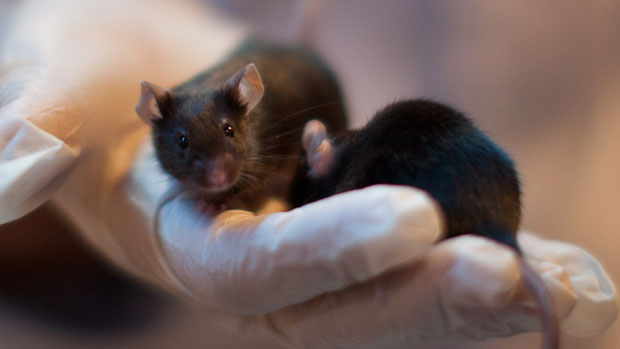A mouse's fear of men casts doubt on scientific research
Scientists discover that rodents are affected by presence of male researchers during experiments

A free daily email with the biggest news stories of the day – and the best features from TheWeek.com
You are now subscribed
Your newsletter sign-up was successful
MICE become more timid and stressed when they smell a man, but are unaffected by the presence of a woman, researchers have discovered.
Scientists found that pheromones excreted by men make rats and mice believe they are under threat. The research "could have major implications" for laboratory tests that involve rodents, the Daily Telegraph says.
Professor Jeffrey Mogil of McGill University in Montreal, who led the study, says that scientists have long suspected that rodents might be aware of their presence, and that this might affect the results of experiments, but "this has never been directly demonstrated until now".
The Week
Escape your echo chamber. Get the facts behind the news, plus analysis from multiple perspectives.

Sign up for The Week's Free Newsletters
From our morning news briefing to a weekly Good News Newsletter, get the best of The Week delivered directly to your inbox.
From our morning news briefing to a weekly Good News Newsletter, get the best of The Week delivered directly to your inbox.
The report could endanger the findings of many previous studies where the presence of scientists in the study has not been adequately accounted for or controlled. "At the very least, published papers should state the gender of the experimenter who performed the behavioural testing," Mogil says.
The report, published in Nature Methods says that "male-related stimuli" induce "robust physiological stress" in lab rats. Scientists believe that chemical signals humans produce, known as pheromones, can affect animals' behaviour.
Men are known to produce more pheromones than women, although humans don't tend to consciously notice the difference in smell.
According to researchers, mice and rats do notice that difference though, and when they smell a male nearby, behave as though they are under threat. Rodents also become anxious in the presence of other male smells, including those from dogs, guinea pigs and cats.
A free daily email with the biggest news stories of the day – and the best features from TheWeek.com
The animals also react to remnant pheromones on garments that have been worn by a male, though they "lose their fear" within an hour.
This last finding may offer a solution to the problem, researchers suggest. The best way to circumvent the problem may be simply to have male experimenters spend time around the rodents before beginning an experiment.
-
 Political cartoons for February 15
Political cartoons for February 15Cartoons Sunday's political cartoons include political ventriloquism, Europe in the middle, and more
-
 The broken water companies failing England and Wales
The broken water companies failing England and WalesExplainer With rising bills, deteriorating river health and a lack of investment, regulators face an uphill battle to stabilise the industry
-
 A thrilling foodie city in northern Japan
A thrilling foodie city in northern JapanThe Week Recommends The food scene here is ‘unspoilt’ and ‘fun’
-
 Home Office worker accused of spiking mistress’s drink with abortion drug
Home Office worker accused of spiking mistress’s drink with abortion drugSpeed Read Darren Burke had failed to convince his girlfriend to terminate pregnancy
-
 In hock to Moscow: exploring Germany’s woeful energy policy
In hock to Moscow: exploring Germany’s woeful energy policySpeed Read Don’t expect Berlin to wean itself off Russian gas any time soon
-
 Were Covid restrictions dropped too soon?
Were Covid restrictions dropped too soon?Speed Read ‘Living with Covid’ is already proving problematic – just look at the travel chaos this week
-
 Inclusive Britain: a new strategy for tackling racism in the UK
Inclusive Britain: a new strategy for tackling racism in the UKSpeed Read Government has revealed action plan setting out 74 steps that ministers will take
-
 Sandy Hook families vs. Remington: a small victory over the gunmakers
Sandy Hook families vs. Remington: a small victory over the gunmakersSpeed Read Last week the families settled a lawsuit for $73m against the manufacturer
-
 Farmers vs. walkers: the battle over ‘Britain’s green and pleasant land’
Farmers vs. walkers: the battle over ‘Britain’s green and pleasant land’Speed Read Updated Countryside Code tells farmers: ‘be nice, say hello, share the space’
-
 Motherhood: why are we putting it off?
Motherhood: why are we putting it off?Speed Read Stats show around 50% of women in England and Wales now don’t have children by 30
-
 Anti-Semitism in America: a case of double standards?
Anti-Semitism in America: a case of double standards?Speed Read Officials were strikingly reluctant to link Texas synagogue attack to anti-Semitism